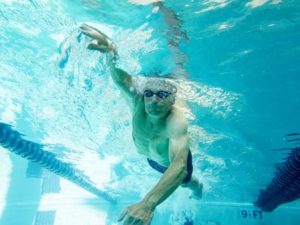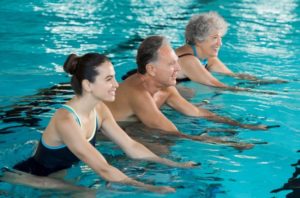When you find yourself looking for some great summer activities for your elderly loved ones to participate in, consider swimming as your go-to activity. Whether you want to get them out of the house for a small period of time or simply want to give them a great way to stay active year round, swimming is one of the best ways to achieve both of these goals. Keep reading our blog to learn just a few of the positive health benefits that swimming can bring to your loved ones.
Good for Their Heart
If you have a loved one entering their golden years, swimming and other water activities are a great way to promote heart health. Swimming is one of the best exercises for lowering blood pressure and improving circulation because it’s a low impact activity that gently uses a majority of the body’s systems and muscles.
Good for Their Joints
For those struggling with joint pain, swimming is one of the greatest ways to exercise without putting extra strain on their joints. Swimming is a low impact, full-body workout that allows everyone to experience a fun method of staying in shape. Due to the non-weight bearing nature of this activity, even those that struggle with hip, spine, or knee pain can find enjoyment.
Improves Their Flexibility
Did you know that swimming is a great way to improve flexibility? The gentle and effective resistance that water provides improves strength and flexibility. Because of the simple movements involved, they will be able to notice an improvement in the range of motion in parts of the body including hips, legs, arms, and neck.
Helps Their Mental Health
This is more of a double benefit for your elderly loved ones. Because swimming is generally a relaxing activity, it’s great for reducing stress and improving mental health. Another aspect of swimming is that it’s a social activity, which means that your senior is able to interact with other people around them and start new friendships. Through their interactions, many of their feelings of loneliness are also greatly reduced.
Conclusion
No matter the activity, you always want to be sure that it can have a positive impact on your loved one’s physical and mental well-being. Swimming is one such activity that checks both of these boxes in a way that’ll allow your loved one the freedom and ability to safely enjoy themselves. Let our team at Home Instead Senior Care help the elders in your life find an activity that’s right for them.




